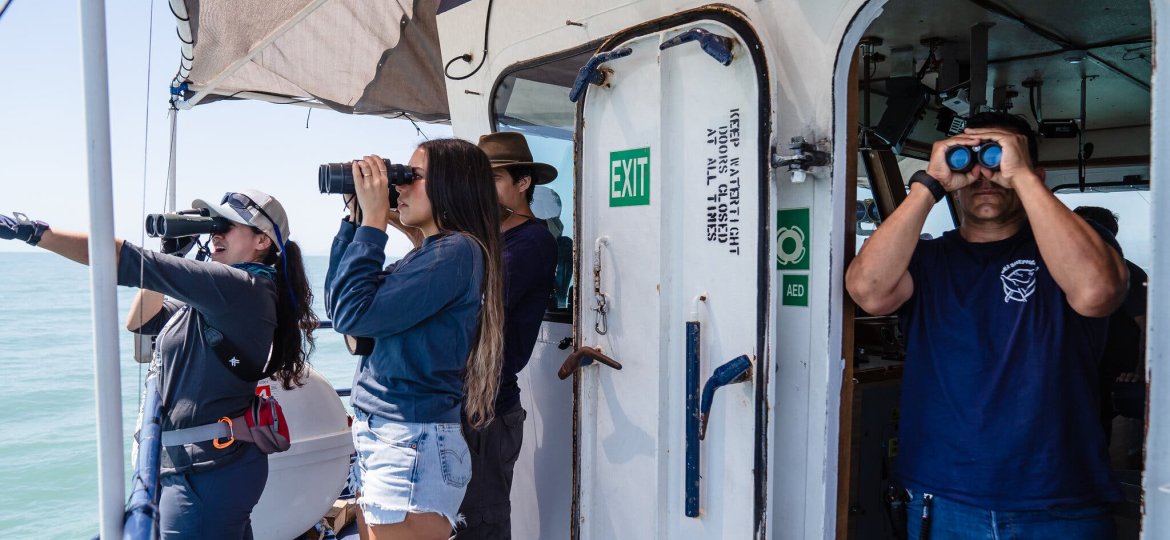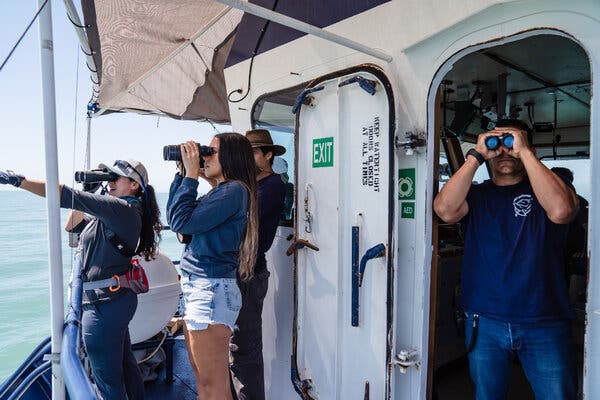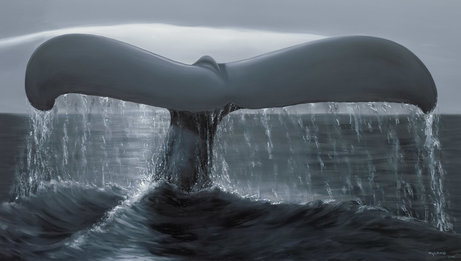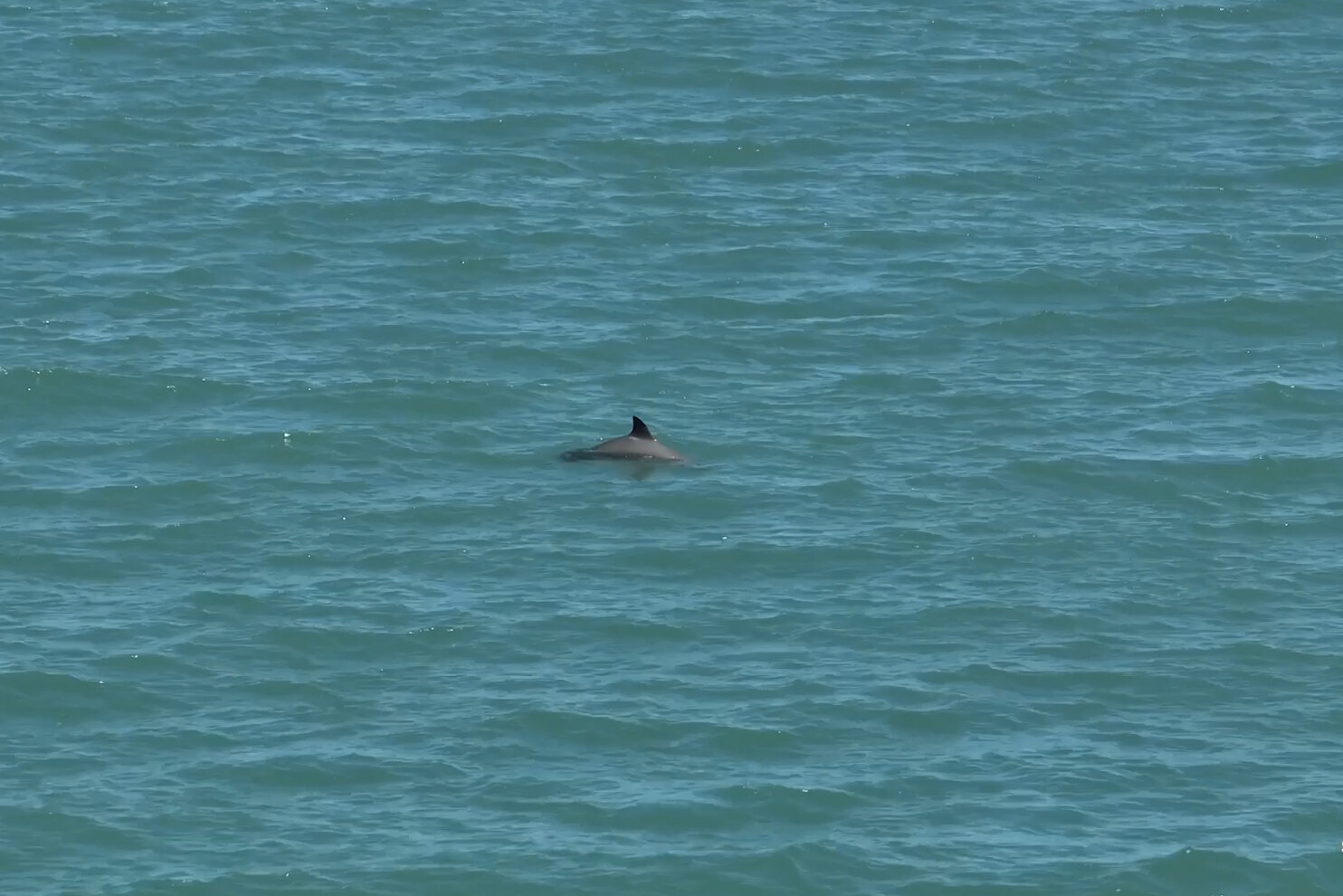
The latest scientific survey of vaquitas, one of the planet’s most imperiled species, suggests that new conservation measures are working.
The world’s most endangered marine mammal, a small porpoise called the vaquita, is hanging onto existence and appears to be benefiting from new conservation measures, according to the results of a new scientific survey of the species that was made public on Wednesday.
An international team of scientists estimated that at least 10 vaquitas remain in the Gulf of California, the waters that separate Baja California from the Mexican mainland. The porpoises are found nowhere else and have been driven to the brink of extinction by drowning in gill nets, a type of fishing gear that drifts like a huge mesh curtain, catching fish by their gills. Dolphins, sea turtles and vaquitas get stuck, too, dying when they can’t surface to breathe.
“Today, we have good news, hopeful news,” María Luisa Albores González, Mexico’s secretary of environment and natural resources, said at a news conference announcing the survey results.

The estimated number of vaquitas in the new survey was similar to the previous one, conducted in 2021. Back then, researchers were aghast by what else they saw: More than 100 fishing boats in a highly protected zone known as the zero-tolerance area. At the time, the Mexican Navy acknowledged its lack of enforcement to The Times.
Since then, the navy has started working more closely with the Sea Shepherd Conservation Society, a nonprofit organization that patrols the region looking for gill nets. And last year, the navy took a major new step, dropping a grid of 193 concrete blocks with protruding hooks, designed to entangle gill nets, in the zero-tolerance area. Gillnetting there appears to have dropped by more than 90 percent, the new report notes.
“It’s the biggest conservation success for vaquita that I’ve seen in 30 years,” said Barbara Taylor, a biologist and vaquita expert who led the survey and who recently retired from National Oceanic and Atmospheric Administration Fisheries.

